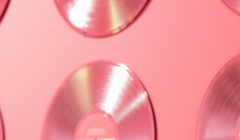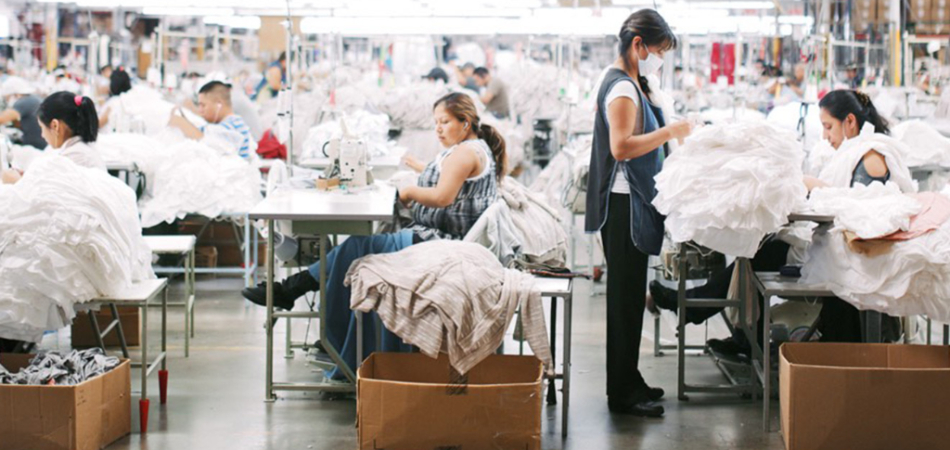
How can brands use music to overcome generational tensions?
Joanna Barnett, Strategy Director at Truant, on the power of music to bring people closer together and broaden a brand’s appeal.
A successful business can also be an ethical one. Transparent production processes are fundamentally changing how, where and by whom products are made.


You may have used the proverbial saying ‘I’ll eat my hat’, but have you ever thought that you might be eating your hat without even realising? According to a recent report by the Ellen MacArthur Foundation, half a million tonnes of tiny synthetic fibres are deposited in the ocean every year, which cannot be cleaned up. As a result, they’re ingested by sea life which means we could end up eating our own clothes as they re-enter the food chain.
The research was co-launched in November 2017 by Dame Ellen MacArthur and fashion designer Stella McCartney and outlined the sheer scale of textile waste caused by a growing culture for fast fashion.
In our race to keep up with the catwalk we’re not encouraged to think about anything other than the garment as it exists on the hanger. However, technology is changing this. It gives us access to more information and a greater awareness of an individual item’s impact on the planet and on the people who make it. This transparency is putting pressure on brands and customers to behave more ethically.
Setting the bar are start-ups such as Everlane, the fashion brand that has tapped into an ignited angst, especially amongst the young, concerning the provenance and price of clothing. The online retailer pledges low-cost, high-quality goods made in the same factories used by designer brands. For every piece of clothing sold Everlane lists the materials, hardware, labour and transportation costs, and provides information on production, including photos of the workers and factory floors in China where yarn is spun or silk is woven.
Transparent production processes are fundamentally changing how, where and by whom products are made. Whilst this is not simply a marketing solution, as marketers we must be prepared for customers wanting to know more about the social, economic and environmental impact of the brands we’re working with, and challenge our clients and colleagues to create a truth we’re not ashamed to tell.
In an ever growing price war among supermarkets, French chain Systeme U offers a different business philosophy: retail that benefits everyone. It’s their belief that low prices shouldn’t jeopardise producers' livelihoods, nor compromise on quality. Their campaigns centre around transparency, showing customers exactly what goes on behind the scenes.
Their latest iteration, Fresh Stories, was a campaign to demonstrate just how fresh Systeme U fish really is. Using Snapchat Stories, customers were able to live one day as Lionell the Fisherman, Romain the Buyer, and Laurence the Fishmonger, all of whom filmed their acivities wearing Snapchat’s spectacles.
In store customers were able to scan the fish label with their phone to see it’s last hours before arriving on the counter. Because Snapchat stories only last 24 hours, customers really knew how fresh it was.
Part of their ongoing campaign ‘Low prices, but not at any price’, Systeme U has seen its market share grow by 0.5% in just one year and its turnover increase by 1.7 billion euros, making the supermarket the second most popular in France.



This is how Lidl took their biggest trolls and turn them into their biggest fans. Approaching shoppers who inaccurately trolled the brand on soical media, the supermarket asked them if they fancied a job. Real life online doubters were shipped off to spend a week with trawler men and farmers so they could see for themselves how Lidl source the highest quality meat, fish, and veg sustainably. Their experience was broadcast on national television, in store, in press, out of home, radio and social media.
The majority of coffee lovers don’t spend time thinking about the environmental impact of their daily caffeine fix. We’re not just talking about disposable cups. The coffee beans themselves produce an excess of waste, approximately 500,000 tonnes, in the UK each year. And nearly all these used coffee grounds end up in landfill sites, causing massive amounts of pollution. bio-bean recycles used coffee grounds into UK-made bio-fuels that provide a cleaner, greener way for companies to power their businesses, and for people to power their homes.


As part of its long-standing collaboration with environmental initiative Parley for the Oceans, adidas has updated one of its classic shoes from the 1990s with yarns made from waste plastic. Decorated with wave-patterned stitching, the EQT Support ADV sneaker is available in two colour combinations, dark navy and blue, and white and turquoise. Its moulded heel counter – the section at the back of the shoe – is made from recycled plastic, while the outsole is made from recycled rubber.
The outdoor retailer Patagonia aims to get consumers thinking about where their clothing is made in order to create a stronger demand for Fair Trade products and to disrupt negative patterns taking place around the world. Unlike most garment factories, Fair Trade Certified factories pay higher wages, have a higher standard of living/working conditions and bring workers closer to earning a living wage. Patagonia’s use of these factories is part of the brand’s ongoing efforts to demonstrate how a successful business can also be an ethical one.

Looks like you need to create a Creativebrief account to perform this action.
Create account Sign inLooks like you need to create a Creativebrief account to perform this action.
Create account Sign in